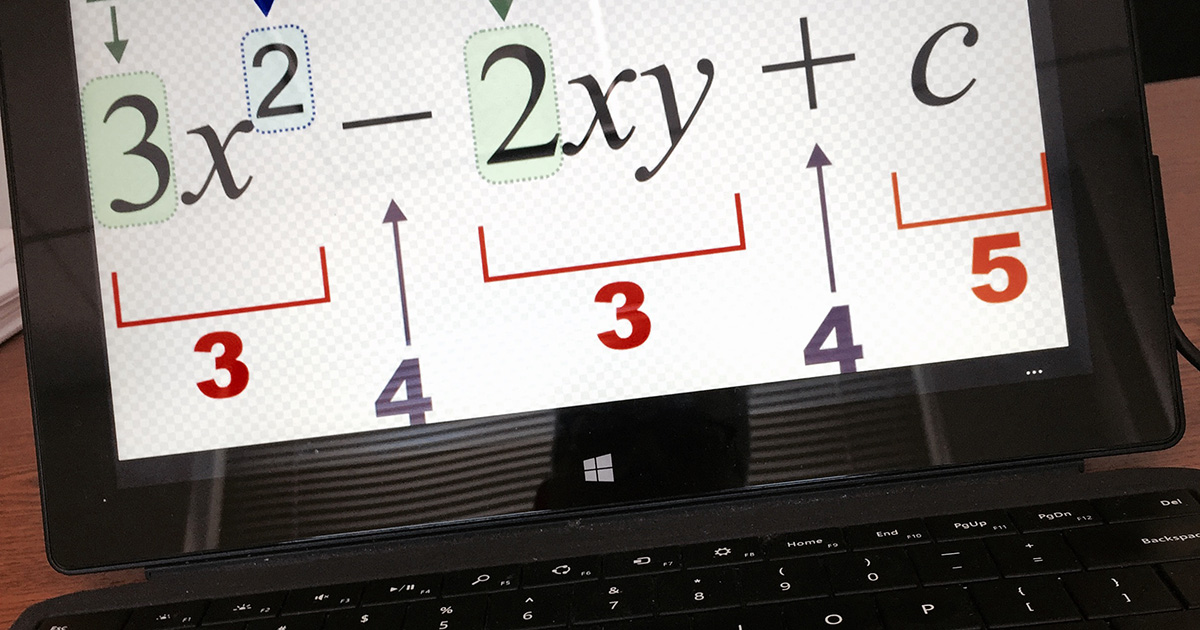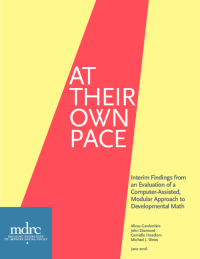At Their Own Pace
Interim Findings from an Evaluation of a Computer-Assisted, Modular Approach to Developmental Math

Community colleges nationwide are looking for solutions to help students complete developmental (remedial) math — a known barrier to graduation. Some are offering computer-assisted, modular developmental math courses that allow students to earn credits incrementally and move through the curriculum at their own pace.
One of these modularized courses, ModMath, was created at Tarrant County College (TCC) near Fort Worth, Texas. It reorganizes the content of TCC’s two semester-long developmental math courses into a set of six modules, each of which is five weeks long. The four primary components of the ModMath intervention are: a diagnostic assessment that places students in a starting module; individual registration into three modules per course section each semester; computer-based instruction delivered online through an instructional software program; and personalized, on-demand assistance in class from an instructor and class aide.
MDRC is evaluating ModMath’s implementation and its effects on students’ academic outcomes using a randomized controlled trial. This report contains implementation findings and some findings on early impacts for the first three semesters of students enrolled in the study:
-
ModMath was well implemented and differed from traditional developmental math courses in both the nature of its instruction and its credit-earning structure.
-
After one semester in the program, students randomly assigned to ModMath (the program group) were, on average, closer to completing the developmental math sequence than were students randomly assigned to traditional, lecture-based courses (the control group). This relatively greater progress was the result of program group students getting credit for completing one or two modules but not the equivalent of an entire course.
-
However, this advantage did not translate into other measures of progress. For example, program group students were not more likely to pass the halfway mark in the developmental math sequence than the control group. More than 70 percent of the students in the study, in either group, were unable to pass this benchmark in the first semester.
-
ModMath had a small negative effect on the percentage of students who completed the developmental math sequence during their first semester (0.4 percent of program group students compared with 1.9 percent of the control group).
While this report contains final findings regarding the implementation of ModMath, it contains only preliminary findings on the program’s effects. Data were only available for students who enrolled in the first three semesters of what were ultimately four semesters of enrollment, and the report only follows them for one semester. The final report from this study will draw upon additional data and provide additional evidence about the effect ModMath may have on student outcomes.






